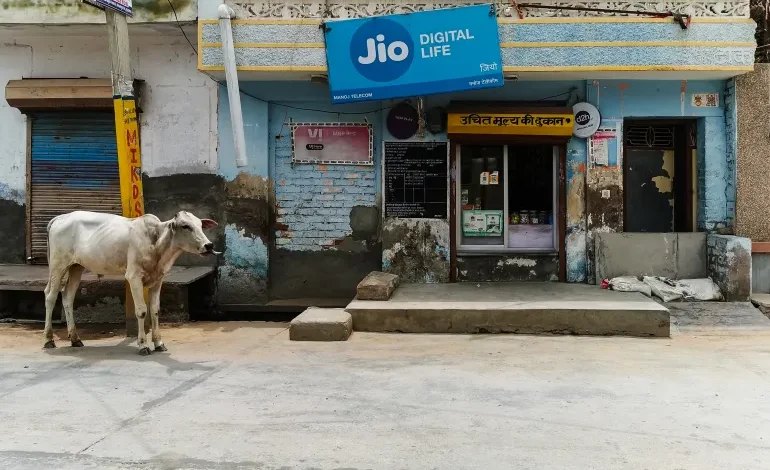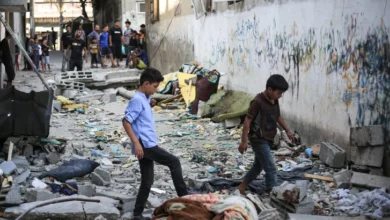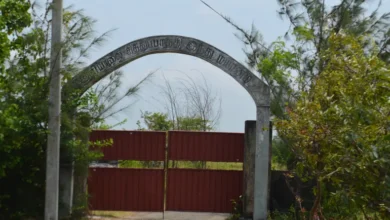An Indian fixer lured workers to Italy. They say he used threats, violence

When Sandeep migrated from India’s Rajasthan state to Italy in 2009, he was fulfilling a long-held dream of relocating overseas for a better life.
But in late 2015, the 42-year-old graduate suddenly lost his job, putting him at imminent risk of losing his residency permit in Italy.
Desperate for work, Sandeep was relieved when an acquaintance told him about a “friend” who was well-known among the Indian community in Italy for procuring jobs in exchange for a fee, he said.
After forking over a 5,000-euro placement fee, Sandeep accepted a job offer with a logistics cooperative that works with major Italian food retail companies, he said, only to find himself subject to conditions that resembled forced labour.
Sandeep’s supervisors would demand he work 11-12 hours a day, seven days a week, and refused to provide sick leave or an employment contract lasting beyond a few months, he said.
When he was not working, Sandeep shared a two-room apartment with 10 other people in the northern city of Padua, at the cost of 330 euros per month, he said.
Still, Sandeep said he dared not complain about his situation.
“I needed my contract to be renewed, otherwise I would have become an illegal migrant in Italy, thus I accepted every condition they imposed on me,” Sandeep, who requested to use a pseudonym, told Al Jazeera.
Sandeep’s story is not unique.
From 2012 to August 2022, hundreds of Indian citizens paid up to 20,000 euros each to Tara Chand Tanwar, an Indian citizen from Sujangarh, Rajasthan, to take up jobs in Italy, where they were subjected to exploitative working and living conditions, a two-year investigation by Al Jazeera and Italian magazine Lavialibera has found.
Al Jazeera and Lavialibera interviewed 32 people, including 14 workers, and examined court documents and business records to show how Tanwar was able to exploit weaknesses in Italy’s migration and procurement laws to implement a system of bribery, blackmail, threats and violence designed to keep workers trapped in dire conditions.
Tanwar, also known as Taru, left his hometown in 1994 after securing a contract to work as a domestic worker in Lecce, a city in southern Italy’s Apulia region.
In 2005, he moved to the city of Campodarsego, near Padua, where he began providing a workforce for the logistics sector in the northern part of the country.
For 10 years, Tanwar “created a regime of terror” by running “a criminal organisation that used methods bordering on mafia tactics”, Domenica Gambardella, a judge for preliminary investigations in Padua, wrote in a court order dated August 3, 2022.
Tanwar had “a monopoly in managing migration from Rajasthan” and exploited workers through “a system of power established through intimidation and violence”, Gambardella wrote.
In his ruling, Gambardella prohibited Tanwar from engaging in professional or entrepreneurial activities for one year and ordered the seizure of assets worth 750,000 euros.
Italian judicial police estimate that 8.7 million euros flowed through 53 bank accounts linked to Tanwar over a decade.
On July 12, 2024, the public prosecutor of the Court of Padua, Marco Brusegan, informed Tanwar that preliminary investigations against him were concluded and sufficient evidence had been gathered to request his indictment.
The notice granted Tanwar 20 days to submit evidence to a judge should he wish to argue that he should not face trial on charges that have not been publicly disclosed.
It is not clear if Tanwar made any submission to the court, which will ultimately decide if the indictment proceeds.
Tanwar’s lawyer declined to comment.
Although Rajasthan is one of India’s wealthiest regions, its unemployment rate hovers around 30 percent and migration to more developed economies, including Italy, is common.
In northern cities such as Ladnun and Sujangarh, some neighbourhoods have gained the nickname “Little Italy” because almost every family has a relative who is sending money back home from the European country.
Residents of Sujangarh and Ladnun said that Tanwar had since 2012 become a reference point for people wanting to migrate to Italy, preparing all the needed documents for a fee.
To operate legally, agents like Tanwar must register with India’s Ministry of External Affairs (MEA) and obtain a licence to recruit workers for roles abroad.
Tanwar, however, never held such a licence, according to the MEA’s list of registered agents.
Workers recruited by Tanwar said they were not aware of the rules, or that their recruiter was not registered with the authorities.
Tanwar provided workers with plane tickets, residence permits and contracts, in some cases offering the option of paying his fees in instalments for convenience’s sake, workers he recruited said.
Tanwar would then require his recruits to stay in apartments he owned until their debts were settled, charging them between 300 and 380 euros in monthly rent, which included meals, they said.
At least eight people would share an apartment with a single bathroom, they said, with some dwellings lacking closets and even beds, leaving workers to sleep on mattresses on the floor.
Most of the workers recruited by Tanwar said they were assigned to a warehouse in Belfiore, a commune about 60km (37 miles) from Padua, which has become a distribution hub for large food retailers in northern Italy.
All of them said they had been employed by one of five cooperatives – Lavoro e Progresso coop, East West Trading srl, Mg Service coop, Sky Coop, and Comservice Soc Coop – which supplied their services to large food retailers including Unicomm, Aspiag and Maxi Di.
According to business records obtained by Al Jazeera, Tanwar founded and owned both Lavoro e Progresso and East West Trading.
Business records indicate that the cooperatives established by Tanwar are still active even though he handed over his role as CEO to another Indian national.
The five cooperatives, as well as Unicomm, Aspiag and Maxi Di, did not respond to requests for comment.
“The food provided to the apartment was insufficient. To avoid starvation, we had to buy extra food with our money,” said Farid, a worker who lived in one of Tanwar’s apartments in Padua while working in Belfiore.
Amir, another migrant worker who was assigned to the warehouse in Belfiore, said that he and his brother agreed to pay Tanwar 10,000 euros to migrate to Italy.
“Part of the sum was covered by my mother selling a piece of land. The remaining part was paid gradually when we started working in Italy. However, then Taru asked for more money than the 10,000 euros we initially agreed upon,” said Amir, who is from Ladnun.
Amir’s mother said that Tanwar tried to intimidate the family after they refused to pay.
“One night, he sent about 10 men to frighten me. On another occasion, his associates assaulted one of my sons. The day after, I went to the police,” she said.
A police officer at the Ladnun police station confirmed that Tanwar was charged with attempting to commit an offence and kidnapping in 2018.
However, Amir’s mother last year agreed to have the charges dropped after reaching an agreement with Taru, a common practice in India. She declined to specify if she reached a financial settlement or another kind of agreement.
Amir’s family is not the only one to have accused Taru of violence.
“If you don’t comply with his rules, it’s over. There’s substantial evidence against him, yet he remains at large. No one wants to press charges against him out of fear. He is like the mafia,” said Sunil, another worker recruited by Taru.
From his two-room apartment in Padua, Sunil recalled being threatened when he refused to obey Taru’s orders.
“Once, he even slapped me in the face,” Sunil said.
Italian court documents obtained by Al Jazeera and Lavialibera show that Taru boasted about his relationships with politicians and law enforcement in India during intercepted phone conversations with associates back home.
The wall of silence around Taru finally broke in 2018 when a Belfiore warehouse worker reported him to authorities.
According to documents filed in the Court of Verona, the worker accused Taru of “systematically taking money in exchange for a job”, forcing workers to live in his apartments and threatening migrant workers with the loss of their residence permits if they did not meet certain targets.
“One of our trade union’s delegates was attacked by unidentified assailants in 2018 after workers began to expose conditions inside the Belfiore warehouse,” said Teo Molin Fop, a representative of the Italian grassroots union Adl Cobas.
“During those years, the atmosphere of fear surrounding Taru was palpable,” Fop said.










